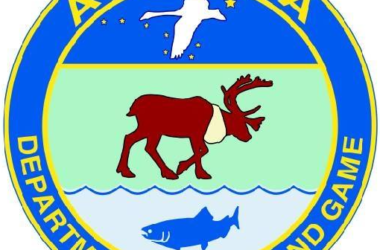WASHINGTON — U.S. Senator Dan Sullivan says illegal foreign fishing practices pose a serious threat to Alaska’s fishing industry, warning that subsidized, unregulated harvests by countries like China and Russia are destabilizing markets and undercutting American fishermen.
Sullivan, who chairs the Senate subcommittee on Coast Guard, Maritime, and Fisheries, led a hearing Thursday in Washington focused on illegal, unreported, and unregulated (IUU) fishing. The discussion centered on enforcement strategies outlined in Sullivan’s Fighting Foreign Illegal Seafood Harvest (FISH) Act, which passed the Senate Commerce Committee unanimously in April.
“There was a senior Russian official who publicly declared, ‘We know we’re at war with American fishermen,’” Sullivan said during the hearing. “We’ve talked about their IUU practices, their slave labor practices. Their governments heavily subsidize their fleets… What more can we be doing?”
The hearing featured Alaska crabber Gabriel Prout, president of the Alaska Bering Sea Crabbers, who said illegal seafood flooding the U.S. market has had a “devastating” effect on prices and processors in Alaska.
“When Russia floods the market with illegal, underpriced crab… it destabilizes the processors,” Prout testified. “Fishermen then are potentially looking at a loss of a place to deliver.”
Prout credited Sullivan’s efforts to ban Russian crab imports, noting that this past season saw record dock prices for Alaska red king crab — a direct result, he said, of cutting out IUU seafood.
Sullivan said China is by far the worst offender of IUU fishing, with roughly 57,000 vessels operating worldwide, many of them part of a heavily subsidized “gray fleet” protected by the Chinese Navy and Coast Guard.
“If you care about the environment and healthy ecosystems, this should be a top concern,” Sullivan said. “China is ravaging our oceans.”
The FISH Act aims to blacklist offending vessels from U.S. ports, expand Coast Guard enforcement capacity, and strengthen international partnerships and treaties to target illegal fishing.
Sullivan also emphasized the importance of bolstering the Coast Guard’s future, pointing to $24.6 billion in the latest budget reconciliation bill — what he called “the biggest investment in the Coast Guard in the history of the United States.”
“This is not just about protecting fish,” Sullivan said. “It’s about protecting American jobs, communities, and food security in the face of criminal activity on the high seas.”
The bill now awaits further action in the full Senate.






